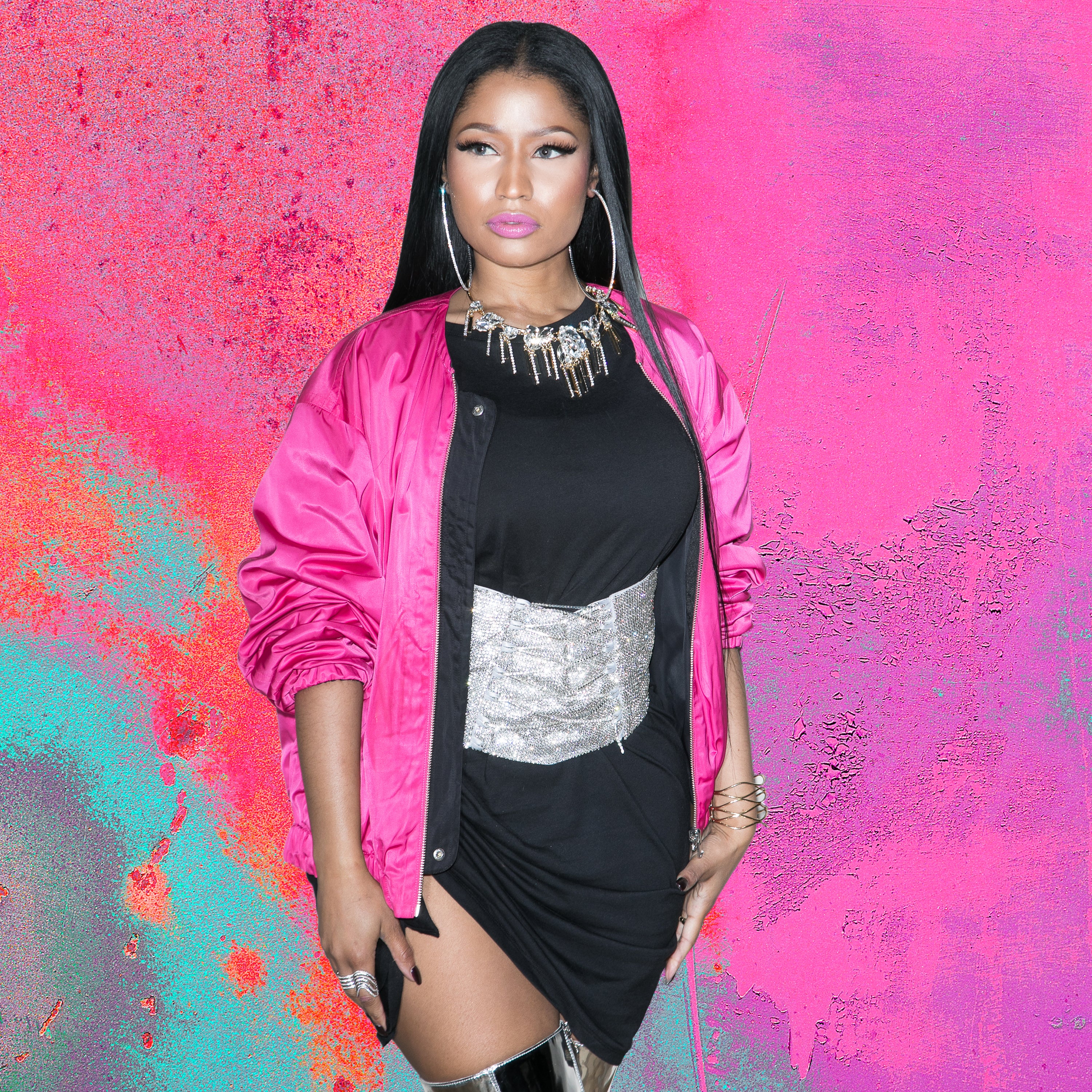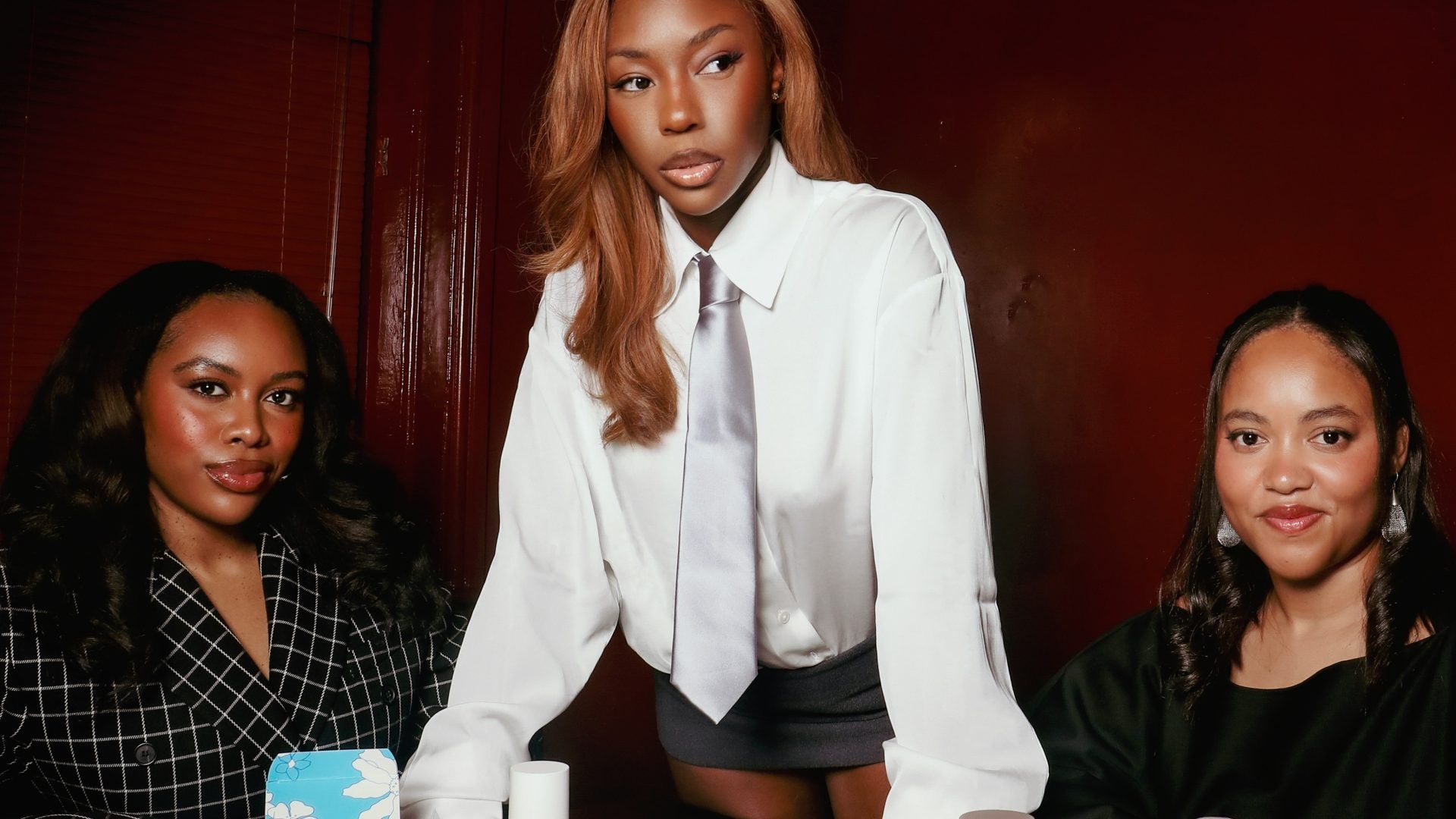
There are a lot of things to unpack from Nicki Minaj’s new Elle magazine cover story. Some of which I hate and I take no joy in saying that. As Minaj has often rapped, I “been a fan,” and love Minaj so much to the point that two of the chapter titles of my debut book are Minaj references. Yes, I’m a little worried that the Barbs are going to camp out in my various social media feeds and wait to barrage me with the sort of nasty onslaughts only a raging teenager can spew from detention hall.
Yet, outside of the stunning cover, I wish none of this Elle thing ever happened because in her attempts to convey both a professional and personal evolution, she instead sounds like she suffers from slight cases of amnesia and hypocrisy.
Let’s begin with the author of the piece who describes Minaj as “the mad offspring of a Lil’ Kim–Missy Elliott–Eminem ménage à rap gods.” Uh, whatever you say, sis. In any event, though writer Devin Gordon does indeed note that Minaj doesn’t exactly hate trap music, his sole reference to her relationship to trap is “MotorSport.” In doing so, he let her off the hook for apparently being “bored to death” by trap.
“The truth of the matter is, trap has taken over so much that even our New York rappers are doing nothing but trap songs, because they feel that that’s the way to make it,” Minaj says. “They’re rapping like people from down south.”
I was introduced to Nicki Minaj around the time she was being managed by Deb Antney and doing multiple tracks with Gucci Mane like “Slumber Party,” “Easy,” “Shopaholic,” and many more. She’s also signed to Young Money, a subsidiary of Cash Money Records. And unless I’m suddenly deaf Minaj’s new single, featuring Lil’ Wayne titled “Rich Sex,” is, in fact, a trap record.
Another eyesore was reading Gordon’s assumption that Minaj was solely talking about female rappers with her disparaging remarks about New York rappers doing trap music. Enter the writer’s needless invocation of Cardi B — particularly the curious framing of the question “How do you solve a problem like Cardi B?”
A$AP Rocky’s initial music was an ode to the sounds of Houston, Texas. A$AP Ferg is sampling old Three Six Mafia records (featuring Nicki Minaj, no less). The south saved hip-hop long ago — including New York’s own scene — but sure, let’s pretend this is a new thing primarily driven by Cardi B.
However, as sexist as it was for the writer to view her comments through such a lens, Minaj is guilty of being a willing participant.
Indeed, the most troubling part of her interview relates to her comments about sex workers. Her new album, Queen, will apparently contain lyrics like “abstaining from sex had to zen my body. I ain’t giving, so don’t ask, I don’t lend my body. He gotta be king status to get in my body.”
Your saddity, Jesus-loving auntie will be blasting that at Thanksgiving when it’s time for dessert and judgment. In any event, per Minaj, one lesson she hopes women will take from Queen is “it being okay to keep your legs closed.”
“I don’t really know how to say that without being offensive,” Minaj explained before proceeding to be just that.
“Maybe I was naïve, but I didn’t realize how many girls were modern-day prostitutes,” she added. “Whether you’re a stripper, or whether you’re an Instagram girl — these girls are so beautiful and they have so much to offer. But I started finding out that you give them a couple thousand dollars, and you can have sex with them. I was like, Yikes. It’s just sad that they don’t know their worth. It makes me sad as a woman. And it makes me sad that maybe I’ve contributed to that in some way.”
Much like it is peculiar to read Minaj bash trap music, it’s befuddling to learn she has such a contemptuous attitude towards sex work. Although she tries to differentiate herself as “selling sex appeal” rather than “sex,” for those who have long followed Minaj’s career, as talented a lyricist as she is, she also exploited trends in hip-hop — namely trap and sex worker aesthetics — to advance her career. Such was her agency to do so and a testament to her shrewdness, but you have songs like “I Endorse These Strippers,” featured on tracks like “I Luv Dem Strippers.”
And again, your new single is called “Rich Sex” in which you say there’s “no such thing as broke and handsome.”
Yes, Minaj does say she’s “selling appeal” so “I can’t look down on these girls,” but isn’t she? When Gordon notes “Well, sex and sex appeal aren’t the same thing,” Minaj retorts with: “That’s true. But I just don’t know if girls who look up to me think that when I’m posting a sexy picture. I’m actually the antithesis of all of that. I’m more of, like, the snobby girl, like the ‘Uh, what’ type of girl. And I want girls to be like that. I’d rather you be called snobby or a bitch or conceited — I’d rather you be called that than easy, and a ho, and a slut.”
The problem with this logic is that those who would use phrases like “easy,” “ho,” or “slut” are coming from a place of misogyny that no woman can convince them out of. The problem isn’t a woman doing what she wants with her body as she sees fit; the issue is patriarchy and the misogyny it spurs that condemns women for their autonomy, no matter how it’s performed.
If Nicki Minaj wants to morph into The Miseducation of Onika Maraj, good luck with that. Still, like Yung Bradshaw, I couldn’t help but wonder, “Has Nicki Minaj met Nicki Minaj?” I’m quite familiar and she has her nerve.





